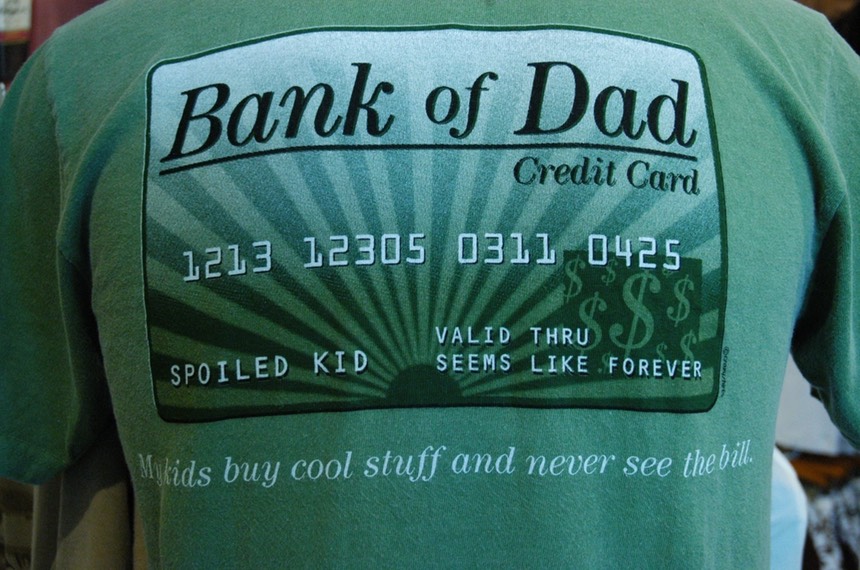Ann’s emergencies were real.
She really did need her car to get to work, and the accident really wasn’t her fault. Her parents gave her repair money and said this would be the last time. It wasn’t. The whiplash treatments weren’t covered by her insurance. Well, really she had let payments lapse, so her parents paid the bills but said that this would be the last time.

Photo by David Bredehoft
Not quite.
Income tax time rolled around and Ann hadn’t put aside any money, so once again her parents coughed up the fees. They hoped this would be the last time, but they knew, somehow, that it wouldn’t be. Talking about it later, Mom asked, “Didn’t we do this last year?” Dad sighed, “Yes, and every year since she left college to take this job. When is she going to learn that taxes happen every year?”
They decided to turn off the money faucet. Together they took what felt like a very bold step. They asked Ann over for dinner, and afterward, when the time seemed right, they said, “We need to talk about money.”
Ann stood up. “Not tonight, sorry, but I’m in a hurry.”
“Yes, tonight.”
“I really can’t. I’m expecting a phone call.”
“Your answering machine will take the message. Please sit down. We really need to talk.” Dad’s voice was unusually firm, and a surprised Ann sat down.
They talked.
They talked and talked. They talked about all the times Ann had came to them for money, and she explained and defended each request. She was good at it. Long practice makes one skillful, and Ann had years of practice preparing her requests for yet another bailout. When they suggested that she find a job that paid more, she insisted she couldn’t work at a job she didn’t love and tearfully wondered if they still loved her.
They talked a long time, and Ann left crying. Dad felt defeated and Mom looked pale. “What have we done?” After a restless night they decided that repeatedly helping Ann in the short run was not helping her in the long run.
Clearly they had been unable to establish their new position with a long talk.
They decided they needed help. They found a parenting coach who validated their decision to stop supporting their daughter’s irresponsible money management. He encouraged them to recognize that they had only meant to help, not harm their daughter by buying her out of her emergencies. They knew that Ann was talented and well educated in her field. They also knew that she worked for low hourly pay at a job where she could do what she loved, but that she often went in late and frequently took days off.
The coach urged them
· to stop focusing on the past,
· to move beyond guilt,
· and to focus on Ann’s future.
She also urged them
· to avoid long discussions,
· to make their point in one sentence,
· to be consistent,
· and to cheer each other on.
Now they have one agreed upon response to the calls for help—a firm, “I work very hard for my money, and I expect you to do the same.” End of conversation.
Has it been easy?
No, but repairing the nonproductive behaviors resulting from overindulgence is important even if it is hard for us to tolerate our children’s discomfort. It is very much worthwhile because, according to the participants in the Overindulgence Studies, irresponsibility resulting from overindulgence causes pain, not comfort, in later life.
There is more help about avoiding overindulgence in How Much is Too Much? Raising Likeable, Responsible, Respectful Children – From Toddlers To Teens – In An Age of Overindulgence (2014, DaCapo Press Lifelong Books).
Photo by David Bredehoft.


